Doing business
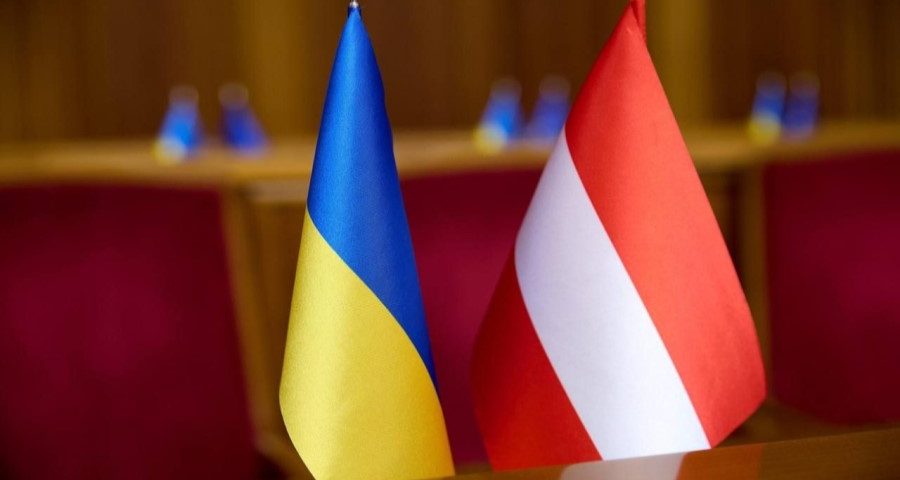
In the third year of the full-scale invasion, Austria has been supporting Ukraine and Ukrainians in their confrontation with russia in humanitarian, economic and diplomatic ways. Despite the fact that the Republic of Austria does not provide military assistance to Ukraine in the form of weapons (in line with its neutrality policy), it has taken a number of important steps to support Ukrainians. The country shows solidarity with its diverse and long-term support, which is provided both bilaterally and in cooperation with international partners.
Austrian diplomats actively support Ukraine’s sovereignty and territorial integrity in the international arena, calling for an end to aggression and respect for international law. Austria participates in negotiations and meetings within the EU, the UN and the OSCE, where it constantly raises the issue of the russian-Ukrainian war. It supports all resolutions that condemn the actions of the russian federation and demand the restoration of peace.
Since the beginning of the war, the Republic of Austria has already provided Ukraine with state financial and humanitarian aid totaling about €250.7 million. Together with the EU, Austria has joined the EU sanctions regime against russia, supporting restrictions on trade, finance, transportation and energy, which puts economic pressure on russia. Austrian banks and businesses have been forced to reduce or cease their operations in the russian market. This is part of a pan-European strategy aimed at isolating the russian economy.
Austria supports the EU Assistance Mission to Ukraine (EUMAM) and contributes to the mission’s costs, “but does not train any Ukrainian soldiers”.
The Republic of Austria has created a fund to support investments in Ukraine, which will be carried out through a special risk-oriented mechanism. The fund was established by the Austrian Ministry of Finance and the Austrian export credit agency OeKB. It is expected that over the next five years, €500 million will be allocated to support companies and develop new business in Ukraine. This will also open up opportunities for Austrian exporters in Ukraine’s recovery.
The Austrian government has allocated €10 million in humanitarian aid for the needs of Austrian and international organizations helping Ukrainians in Ukraine and neighboring Moldova. Of this amount, €6 million will go to the Neighbors in Need organization for emergency assistance to people, including the supply of drinking water, food and temporary shelter. In addition, the International Committee of the Red Cross and the United Nations High Commissioner for Refugees will receive €2 million each.
Austria provides substantial humanitarian aid to Ukraine, including financial support and supplies of basic goods such as medical supplies, special demining equipment, as well as food and clothing for displaced people. The country is sending fire trucks and ambulances. Vienna’s emergency services have already handed over 11 fire and rescue vehicles and 5 ambulances to Ukrainian rescuers.
At the same time, Austria is helping Ukraine with energy resources, in particular, providing support for the restoration of the destroyed energy infrastructure through EU programs.
The Honorary Consulate of the Republic of Austria in the city of Dnipro actively supports Dnipropetrovsk region by providing humanitarian aid and developing cultural and economic ties. The Honorary Consulate is involved in various projects that include the supply of medical supplies, medicines, and support for medical institutions and social organizations in the Dnipropetrovsk region. Thanks to such projects, as well as assistance from the Austrian government and non-governmental organizations, the necessary support is provided to the civilian population suffering from the consequences of the war.
In August 2024, with the assistance of the Honorary Consulate, the Dnipro Center for Social and Psychological Assistance, which provides shelter and assistance to people affected by violence and armed conflict, received household chemicals and personal care products from AFINA Group, a leading Ukrainian market operator.
Foreign trade between Austria and Ukraine is also actively developing and plays an important role in the bilateral economic relations of both countries. Ukraine’s main exports to Austria are raw materials, agricultural products, chemical and metallurgical products. At the same time, Austria supplies Ukraine with engineering products, pharmaceuticals, high-tech equipment, and consumer goods.
In addition, Austria is one of the leading investors in Ukraine’s economy, especially in such sectors as banking, insurance, energy, and agriculture. Many Austrian companies, such as Raiffeisen Bank International and OMV Group, already have representative offices in Ukraine, which contributes to the deepening of economic cooperation.
Austria remains an important trade and investment partner for Dnipropetrovsk region as well. There are 28 companies with Austrian investments in the region, which have invested $35.9 million in the region’s economy.
Austrian companies are most interested in ferrous metals and products made of them, furniture, knitwear, railway locomotive parts, etc. The volume of goods exported from Dnipropetrovsk region amounted to $20.7 million, which is 3.4% of the total for Ukraine.
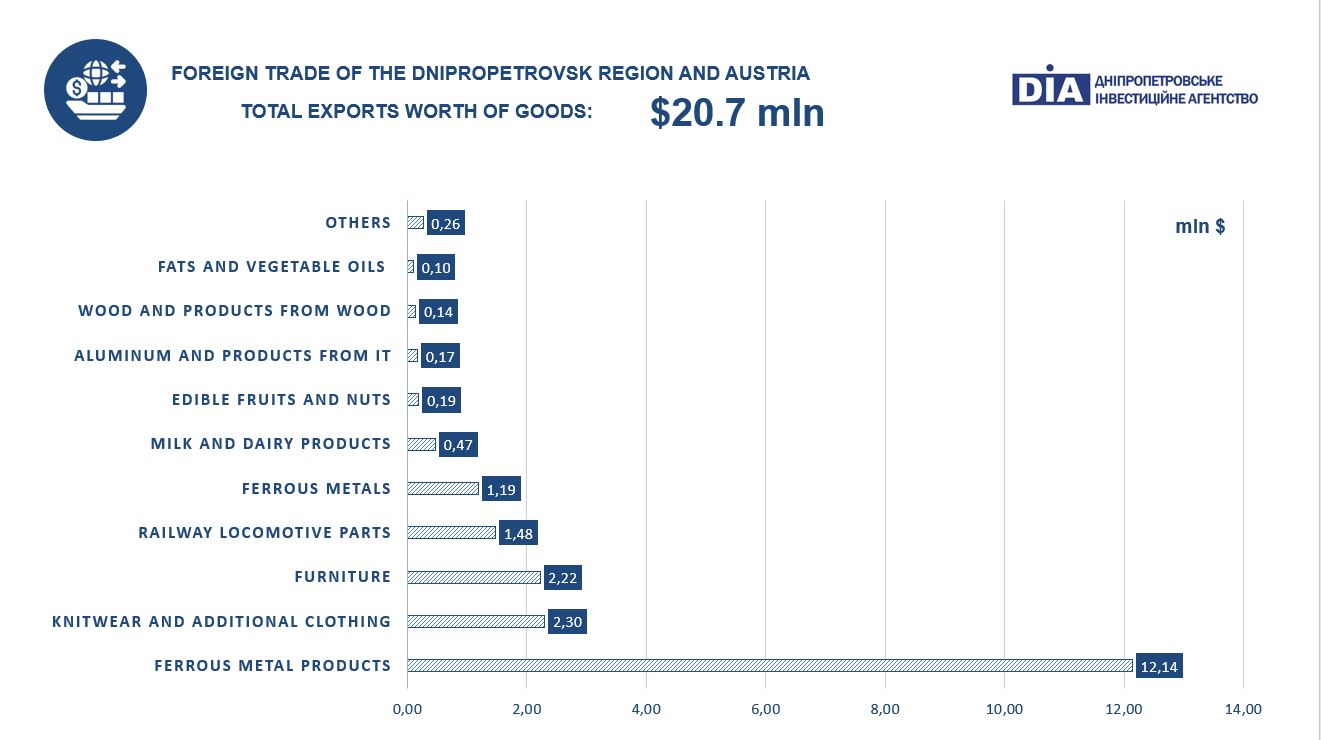
43 companies in Dnipropetrovsk region exported their products to the Austrian market, including metallurgical, processing, machine-building and agricultural enterprises.
The top 5 exporters in terms of exported products are the following:
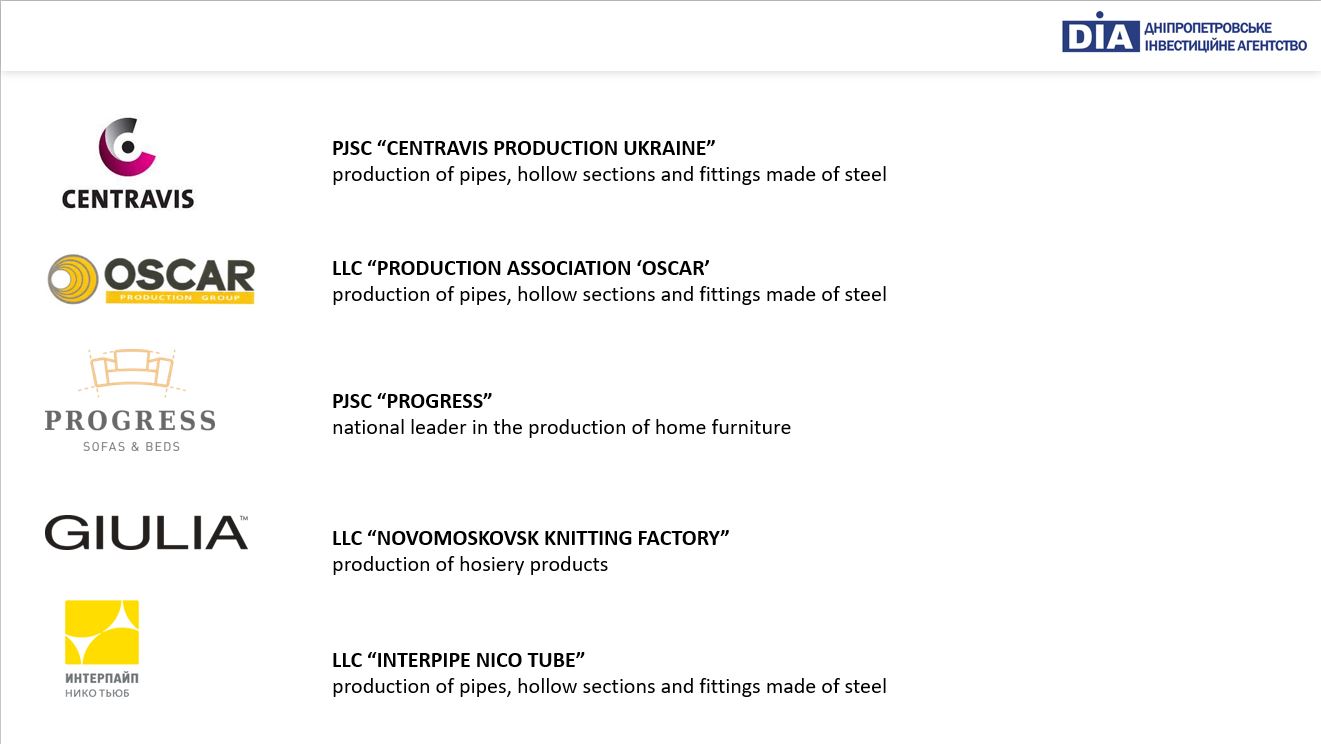
In turn, 147 importing companies in the region bought Austrian goods most of all, namely ferrous metal products, machinery and equipment, medicines, land transport vehicles, and others. Imports of goods from Austria to Dnipropetrovsk region grew by 73.6% to $46 million. The region’s share in Ukraine’s imports of goods from Austria is about 8.6%.
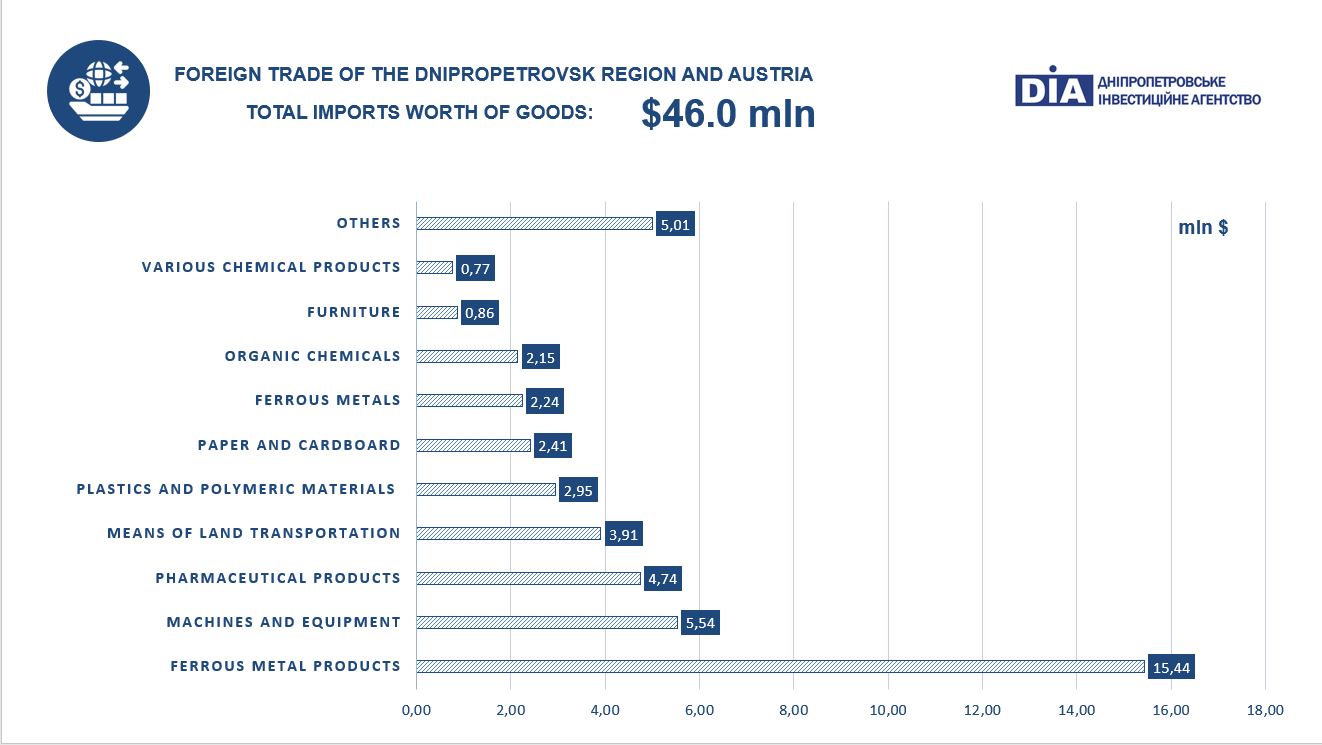
The following importers are among the top 5 in terms of imported products:
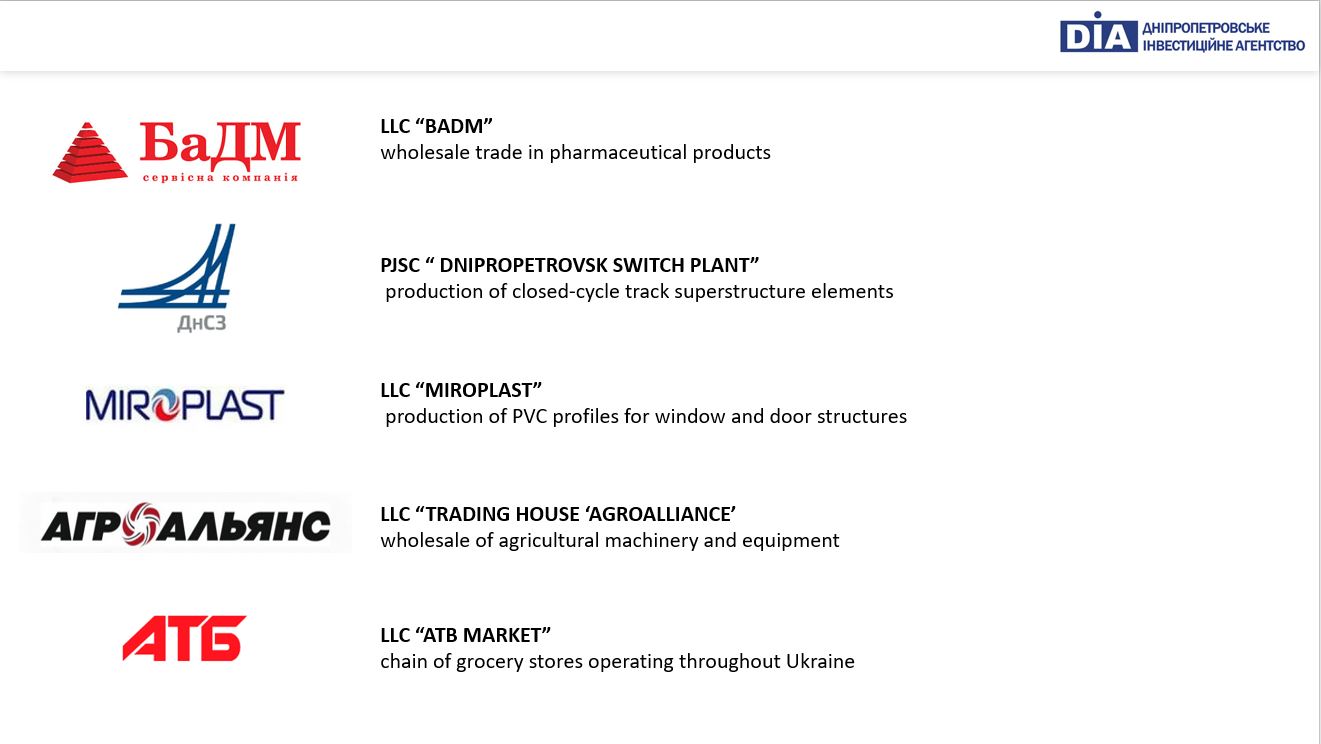
Import operations were mainly carried out by chemical, metallurgical, machine-building, and trade enterprises.
Source: information for the article was taken from open online sources and the website of the Main Department of Statistics in Dnipropetrovsk region.